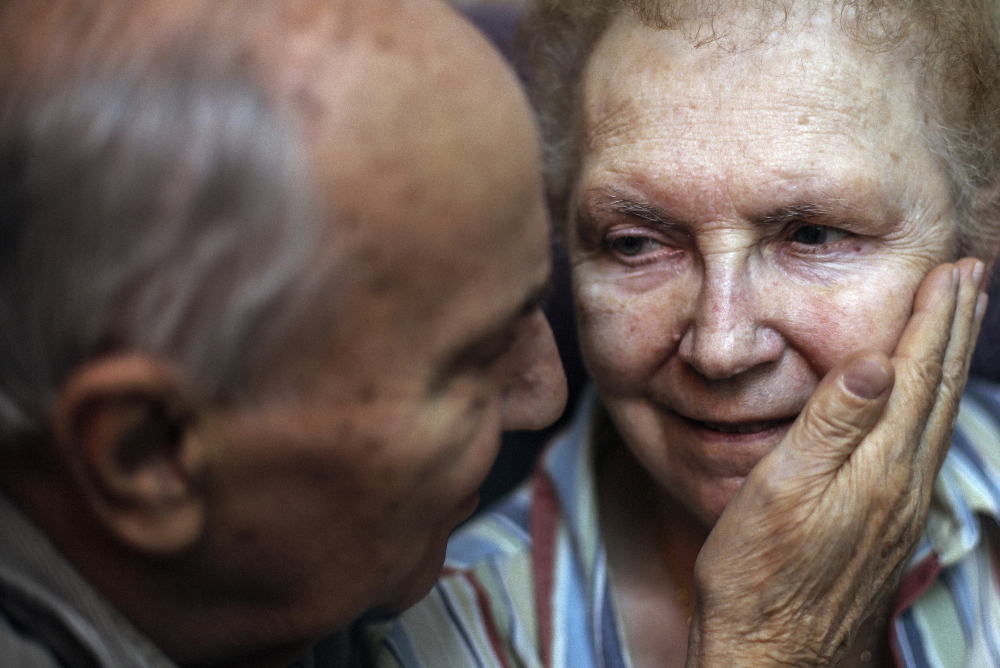MaineHealth, the health care conglomerate anchored by Maine Medical Center, received a check from the federal government for $9.2 million in October, a reward for saving Medicare nearly $20 million through cost efficiencies in primary care.
The $9.2 million is just a small part of MaineHealth’s $1.9 billion budget, but the savings represent what health experts say could be a sea change in how health care is paid for in the United States. Similar changes in reimbursement for health care are underway at insurance companies, and Medicare is expected to continue to move away from payment models that favor activity over patient satisfaction.
MaineHealth’s payday happened because it participated in the Medicare Shared Savings Program, a voluntary initiative that provides incentives to cut costs in primary care networks. The networks are called accountable care organizations, or ACOs. Central Maine ACO, and a group that represents community health centers, Maine Community ACO, also achieved savings for Medicare, although not enough to get a check from the government, according to the Medicare program’s website. Central Maine saved $2.6 million and Maine Community saved $1.9 million.
Frank McGinty, executive vice president and treasurer for MaineHealth, said the program encourages better monitoring of patients and reduces unnecessary tests, while also measuring the quality of patients’ health. The $20 million in savings accrued during treatment of 40,000 Maine Medicare patients over an 18-month period that ended in December 2013.
MaineHealth participated in the program not only to save money, but because the system improves care for patients, McGinty said.
“More and more organizations that pay us for services will be changing the way they pay us,” he said. “It causes organizations like ours to think of better ways to care for patients.”
The financial incentives are changing, he said. For instance, organizations are paid based on the health outcomes of a patient population rather than for how many times a piece of medical equipment is used.
When the financial focus changes, McGinty said, it removes rewards for overusing expensive medical tests – the “fee-for-service” system – in favor of incentives for improved patient health.
Instead of waiting for chronic conditions in patients to deteriorate, primary care professionals such as doctors, nurses, nurse practitioners and physician assistants keep better track of patients to make sure they are taking care of themselves. The shift is away from reactionary medicine and toward prevention, McGinty said.
“There’s more communication to make sure that someone with diabetes has their condition under control, say, a phone call to remind them to come in for a visit,” he said.
The results so far are encouraging, McGinty said. Medicare costs declined 1.1 percent in the MaineHealth primary care network in the 18-month period, versus a roughly 8 percent average annual increase in 2009-11.
McGinty said the program protects against health organizations saving money by denying care to patients by also measuring patient satisfaction, quality of life and health outcomes.
That’s a key to the future success of the program, said Mitchell Stein, an independent health policy analyst in Cumberland.
“It’s a good sign, but this is all still very preliminary,” Stein said.
The government has been trying to introduce similar cost controls for years, he said, but now, with improved technology such as computerized patient records, health care networks can better identify unnecessary costs and improve efficiencies.
The transition to the new reimbursement models is already happening, McGinty said. About $600 million of MaineHealth’s $1.9 billion budget is tied to reimbursement models that move away from the fee-for-service system that was so inefficient. Three years ago, only about $75 million of MaineHealth’s revenue was not fee-for-service, he said.
Patients with similar conditions are grouped together, and simply improving communication among physicians can improve care.
Portland resident Mary Carol Pochebit, 81, is a patient in the MaineHealth primary care network, and her doctors collaborated to take her off of unnecessary medication. Her health improved to the point where she could leave a nursing home and return home, where she’s semi-independent, receiving care from her husband, John, and visiting nurses.
Over the years, Pochebit ended up on 26 medications to treat various chronic conditions, and a lack of coordination among her doctors resulted in medications being added but not removed, her husband said.
“We had no idea why she was taking some of them,” John Pochebit said.
His wife ended up in a catatonic state and was in a nursing home for several months before she was weaned off many of the drugs and sent home. Now she takes 11 medications.
“I feel so much better, and I’m not lethargic or depressed,” said Mary Carol Pochebit, who still has difficulty walking.
Dr. Don Medd, Pochebit’s primary care physician, said the Medicare program is a good step forward. He believes the reimbursement model will change substantially over the next few years, but it’s still currently a “production model.”
“We’re still a little bit under the gun, but there’s a movement toward quality over quantity” in the reimbursement systems, Medd said.
He’s “optimistic” that doctors soon will be able to spend more time with patients and not have to be concerned that they need to see a certain number of patients per day to make their practice financially viable.
For Vanessa Santarelli, CEO of the Maine Primary Care Association, the changes can’t come fast enough. She said that although the Maine Community ACO “fell just short” of receiving a check from Medicare, the goals of Medicare are now better aligned with the community health clinics, which provide preventive care for low-income residents.
“We’ve been committed to these ideas from the very start,” Santarelli said.
Copy the Story Link
Send questions/comments to the editors.





Success. Please wait for the page to reload. If the page does not reload within 5 seconds, please refresh the page.
Enter your email and password to access comments.
Hi, to comment on stories you must . This profile is in addition to your subscription and website login.
Already have a commenting profile? .
Invalid username/password.
Please check your email to confirm and complete your registration.
Only subscribers are eligible to post comments. Please subscribe or login first for digital access. Here’s why.
Use the form below to reset your password. When you've submitted your account email, we will send an email with a reset code.